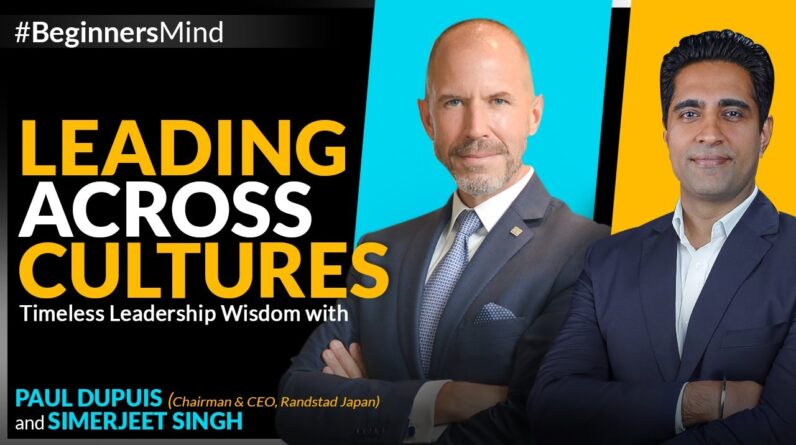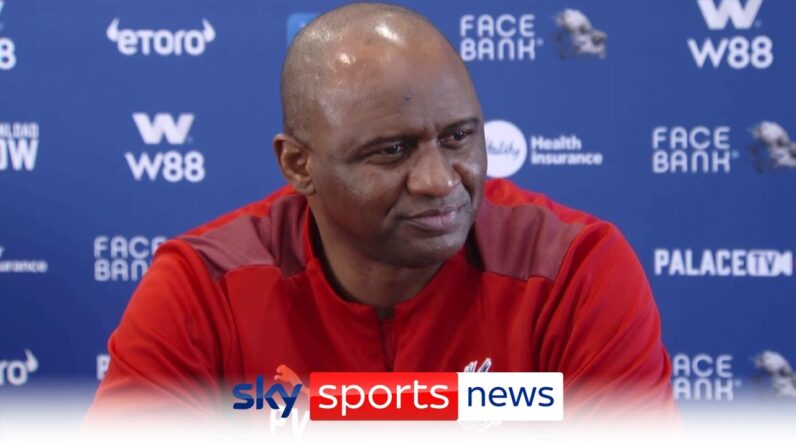In this video we will start with a guest, from Madagascar; Lola the lemur to talk about Leadership, which is the ability to guide and inspire others to do something or achieve a goal with enthusiasm. For this it is very important to involve all the members so that they perform some task and when obtaining the achievements to celebrate them. An absolutely interesting topic.
We will continue talking about Empathy with Hugo the Whale, through a story of two friends in which it becomes clear to help someone who needs it in a supportive way and even being loyal, because we show how much we care about a person by putting ourselves in his place and understanding what he is going through.
And to close, we will have from Israel to Delikat the dove who will fill us with tranquility with a story that will teach us different ways to find peace. Not only is it about being in a quiet and quiet place, but it is also possible to achieve it by enjoying the moment we are living and in the company of the people around us. Also when we have the certainty that we will achieve what we want.
The transcript of the video is below:
– Today on Human Nature, visiting us all the way from Madagascar, Lola the Lemur. She’ll tell us all about her species and fascinate us with a story about leadership. Then, we’ll sail out to sea with our friend, Hugo the Whale with whom we’ll learn about the world’s largest aquatic mammals. Finally, we’ll wrap up our show with Delikat the Dove, who will talk to us about peacefulness. We have a great show ahead. Let’s not waste any time. I’m Jade the Giraffe, and this is Human Nature. (upbeat music) (monkey swinging) (music) (various animal sounds) She’s one of the smallest primates in the world and her tail makes up a large part of her body making it appear larger than it really is. Here to talk to us about leadership, let’s welcome her with a big round of applause, Lola the Lemur. (applause) Welcome to Human Nature, Lola. – Thank you for inviting me, Jade. You have a huge fan base in Madagascar. Nobody misses an episode of Human Nature. You know what? There’s even a fan club! – Whoa! Thank you to all of our friends in Madagascar. I’ll be visiting soon. Tell us, Lola, what is leadership? – [Lola] Leadership is when we have the ability to lead others to do something with enthusiasm. – Hmmm. I dunno if I’m getting this right. Is leadership when I tell my giraffe friends we should go to the savanna and have fun? – Not necessarily, Jade. Leadership is when we are ready to take the first step and have a plan to get things rolling. – So you’re saying it’s someone that motivates the group to move forward and reach a common goal? – That’s right, Jade. We leumurs actually are very, very social creatures. We live in family groups and we always remain united. Each family depends on its leader to keep them safe and also to get their food. So, one lemur always assumes the leadership role in their family. Do you want to know who the leaders are? – We all want to know, Lola. Tell us. – [Lola] The female lemurs! – [Audience] Ohhh! –
Amazing! I’m beginning to understand what leadership is. Here at the studio, the leader of the entire production is the director. Lola, the name of your species is a little strange. What does it mean? – [Lola] The word lemur means spirit of the night and that’s because we’re animals with nocturnal habits. – [Jade] Do lemurs only live in Madagascar? – [Lola] Many of us live in Madagascar and another part of the family lives in the Comoro Islands. Both are just wonderful places. – [Jade] Lola, you mentioned that in your families the females are the leaders. I think it would be a good idea if you told us a bit more about leadership. – I’d be happy to, Jade. Let me tell you first about Moana and his story. – It’s always easier to learn with a good story. We’re all ears, Lola. – Moana is a boy from Madagascar. One day, his teacher informed him and his classmates that some doctors would be coming to their classroom to give them a vaccine. – [Jade] I’m a little scared of vaccines. – [Lola] And many children are too, Jade. But vaccines are very important to avoid getting sick. – [Jade] It’s the best armor your body could have. Please continue with your story, Lola. – [Lola] All of Moana’s classmates were very scared and none of them wanted to go first. One of them said, “Ouch, that hurts!” and another said, “That’s gonna leave a bruise!” When Moana came home, we met up and he was really worried. – [Moana] Tomorrow is vaccination day but all my classmates are scared and so am I. A little bit. – [Jade] You know, Moana, I am the leader of the lemur family and that means I have to make important decisions and motivate others to follow them as well. Sometimes, those decisions aren’t easy to make. Your dad is a doctor, right? – [Moana] Yes, and I’ve seen him give vaccines and shots many times before, and although people are afraid at first they realize that they’re good for their health and that it really doesn’t hurt that much.
– [Jade] That’s right! Tomorrow, you have to be the leader and motivate your classmates to get their vaccines. The next morning, Moana arrived at school very determined. – [Moana] Teacher, I want to be the first to get vaccinated. – Moana sure is brave. – [Lola] And a great leader. You see Jade, leadership is about inspiring others to do something and encouraging your peers to do it. Moana approached the doctors and got vaccinated. When his classmates saw him, they started walking closer too and soon enough, everyone had been vaccinated. – [Jade] Moana took the first step. – Exactly. That’s what being a leader and having leadership is all about. Being willing to take the first step to start something cause leaders are people with determination. – And most importantly the children were vaccinated and can now avoid contracting diseases. How wonderful Moana! I’m sure you’re watching us from Madagascar. We want to congratulate you for motivating your classmates to get vaccinated. (cheering) Let’s give him a big round of applause. (applause) – Lola, can you tell us some of the ways we can show leadership? – I’d love to, Jade. We show leadership when we develop a plan of action to reach a goal that we have envisioned. We inspire others to do team activities. We involve our team members and invite them to participate on the different tasks at hand. We support all of the efforts that they make for our team. We celebrate accomplishments together. We look for new things to do and activities to help us improve our tasks. (applause) – Lola, thank you so much for joining us on Human Nature. Please give a warm greeting to everyone in Madagascar. Next time I have some time off, I’ll visit. – We’ll be waiting for you, Jade! Thank you for inviting me! – You know friends? Vaccines are very important. There is no need to be afraid of them. Would you like to play a quick game? – Yes! (applause) – [Jade] We show leadership when A, we wait for others to tell us what to do. B, we don’t make team decisions. C, we inspire others to move forward through commitment and teamwork. – [Contestant] Letter C, Jade. We show leadership when we inspire others to move forward through commitment and teamwork. – [Jade] That’s right. Let’s move on. We show leadership when A, we don’t trust other’s abilities. B, we assign tasks to others and trust that they will do a good job. C, we don’t like to work in a team. – [Contestant] Letter B. We assign tasks to others and trust that they will do a good job. – [Jade] Very good! If we help our classmates to find a solution to a problem, we are showing A, leadership. B, how much we know. C, none of the above. – [Contestant] It’s the letter A. – That’s right! If you liked this game, get ready for what’s coming up next. When we return, Hugo the Whale will tell us a story about two great friends, Rolo and Beto. Don’t go too far folks! We’ll be back faster than an alligator takes a mud bath. (applause) We’ll be right back. (music) (various animal sounds) (various animal sounds) – We’re back friends. (applause) And as promised, our next guest will surely amaze you. Legend has it that he comes from a prehistoric animal that lived millions of years ago and returned to the water after living on land for a long time. Let’s welcome Hugo the Whale with a standing ovation. (applause and cheering) Welcome, Hugo. – Thanks, Jade. It’s great to be on Human Nature. It’s an awesome show. I always tune in and learn a lot. – [Jade] What has been your favorite episode, Hugo? – [Hugo] Well, I have a few but I’ve really loved the one about Allegra the Ant and her story about cooperation. It was wonderful. – [Jade] Great story. Greetings to all the animals that have tuned in. Without you, (applause) Human Nature wouldn’t be as fun. Let’s talk about empathy.
What is it, Hugo? – [Hugo] Well, listen Jade. Empathy comes in many forms. Empathy is caring enough about someone to really feel their pain, frustration, or suffering. – [Jade] Expressing empathy means that we can show respect and compassion for another person by listening, understanding, supporting, and minimizing the pain that they may be feeling. – [Hugo] Yes, Jade. Empathy requires for us to be humble, patient, and loving enough to put someone else’s needs first. – Like when I was sick, my cousin took care of me and gave me herbal teas to make sure I would feel better. – [Hugo] That’s a great example of showing empathy. You know, Jade? Us whales learn to slap our tail by watching the older whales do it. We use that movement to gather fish and feed ourselves. – [Jade] So whales that are younger are learning from whales that are older? – [Hugo] That’s right, Jade. The same thing happens with empathy. We learn to have empathy by observing others practicing it. (huffing) Whales are very intelligent and social animals amongst themselves. We value our relationships a lot and we’re excellent parents. We take care of our young for as long as necessary. Would you like to know something interesting? We can live in any ocean in hot or cold waters. We can adapt to any environment. – [Jade] It’s good to have family everywhere. Ha ha ha. – [Hugo] That’s right. And we have the ability to play and hunt in organized groups. We even adopt other species such as dolphins. If they’re lost from their herds, we show empathy towards them. – We’re getting a ton of questions from all parts of the world, Hugo. Marcelo from Seville wants to know how big whales are. Excellent question, Marcelo.
– [Hugo] Whales reach 65 feet and our cousins the blue whales can reach 104 feet. (breathing heavily) We all have fins designed for swimming, a tail for sailing, and nostrils for breathing. – Wow, whales are huge! They tell me we have another call. Should we answer it together, Hugo? – Why not? Hello! Who’s there? – [Beto] Hi, Jade, my name is Beto, and I love your show. We always see it at home. – Hey, Beto, would you like to say something to our guest? – [Beto] Hi, Hugo. How are you? Remember me? We met last year when my friend Rolo and I traveled with our families to the Valdes Peninsula in Patagonia, Argentina to see you guys. – [Jade] Hugo, what were you doing in Patagonia? – [Hugo] I was on vacation visiting my cousin Catalina. – [Beto] And it was so cool! Too bad we can’t go this year. Rolo has a really bad cold and it’s not good for him to travel there. – [Hugo] Of course. It’s a very cold area. Rolo is probably very sad. – [Beto] Yes, he is. Rolo loves whales as much as I do. I’d like to make him feel better but I don’t know what to do, Hugo. – [Hugo] Do you know what empathy is, Beto? Empathy is being supportive enough of someone to really feel their grief, their frustration, or their suffering. – [Jade] Beto feels bad that Rolo can’t travel to go see the whales. – [Hugo] That’s right, Beto. He is empathizing with his friend. To be empathetic with someone is to show them loyalty and love, just like Beto with Rolo. – How could Beto make Rolo feel better? – A good idea would be to go visit him when he’s feeling better. Spend some time with him. – [Beto] Yes, and I’m bringing him tons of pictures of whales.
– [Jade] You guys could also search for information on the internet. – [Hugo] And watch lots of videos! I’m sure Rolo will be very happy to know that his friend cares so much about him. – [Beto] So many good ideas! When I visit Rolo, we can plan our next trip. My dad says that we can go in a couple of months. I’m sure he’s gonna be very happy. – Beto, you’re a great friend. Say hello to Rolo from us and when you visit the Valdes Peninsula, look for my cousin Catalina, and send her my regards. I’m sure she’ll let you take many pictures and videos of her. – [Beto] Will do. See you soon! – Empathy is very important when trying to make our friends feel better when they’re sad or worried about something. Hugo, would you like to help us review some ways of showing empathy? – I’d love to, Jade. We show empathy when we help people in difficult situations with our loyalty, compassion, and kindness. We show solidarity when we care about others and not just ourselves. We let others know that we care about them. We give love to other people. We take the time to understand another person’s suffering. We respect others by listening to them and supporting them, helping minimize the pain they feel. – [Jade] Thank you (cheering) for helping us review, Hugo. On Human Nature, we have a segment called Jade’s Online Chit Chat. I would love it if you would help me answer some of these questions. What do you say? – Of course, Jade! – [Jade] Hi Jade. My name is Patricio and I’m from Paraguay. I have a classmate in school who’s not very good at math. Turns out that I am. Should I help him? – [Hugo] Hi Patricio. If you know that your classmate is struggling with math and you understand it, you should help him by explaining what your teacher has taught. I’m sure your classmate might be worried that they’re not understanding the lessons.
– [Jade] That means that empathy is putting yourself in another person’s shoes? – [Hugo] Exactly! – [Jade] Hi Jade. Today’s show has been awesome! My name is Libe and I have a little sister we call Pochi. She’s very sad because she’s still very little and they won’t let her go on the new rides at the park. – [Hugo] Hi, Libe. I can imagine how your little sister must feel. You could go with her on the rides for kids her age and let her know that when you were her size you went through the same thing but you understood that when you grew a little bigger you’d be able to go on the rides for bigger kids. That’s a way of showing empathy with your little sister. – [Jade] Hi Jade. I’m Carolina and I’m writing from Cartagena, Colombia. I like to play a lot of tennis and I always participate in tournaments with my friends. Sometimes, I win trophies and medals and sometimes I don’t. At the last one, my best friend won, and I was very happy. Is recognizing another person’s efforts and being happy about their accomplishments a way of showing empathy? – [Hugo] That’s right, Jade. Being empathetic with others means being happy when your friends are doing well. Well done, Carolina! – Hugo, it’s been great to have you on Human Nature and to learn about whales and about the value of empathy. Thank you for being with us. – I hope to see you soon, friends. Thank you, Jade! – And this is what’s coming. When we return, we’ll learn about one of the most famous animals in the world, doves and about their peacefulness. Don’t move from your seats! We’ll be back before this puppy stops spinning and finally lays down. We’ll be back (applause) with more of Human Nature. (music) (various animal sounds) (various animal sounds) – We’re back folks with more of Human Nature. Our last guest today is a fantastic animal. In the ancient times, his kind delivered mail from one place to another. Now they’re known for participating in various magic shows and are a symbol of peace. Let’s welcome (applause) Delikat the Dove. (applause) Hello, Delikat. How nice to have you with us. – Hello, Jade. Hello, friends. I’m very happy to be on your show. – Why don’t you tell us a little about doves and about peacefulness? What is peacefulness? – [Delikat] Jade, peacefulness means being calm and happy in the moment we are living in and with the people surrounding us as well. – [Jade] So, peacefulness is an inner state of calm. – [Delikat] Yes, you see Jade, doves are spread out all over the world and despite that, we have managed to adapt, stay calm, and enjoy every new space or place that we are in, and that’s what peacefulness is all about. – [Jade] Well, you’re also part of a family that is more than 300 different species. That’s why you’re all over the world. – Not everywhere, Jade. We don’t live in Antarctica or the Arctic because we don’t like extremely cold weather. – [Jade] Delikat, tell us how fast can doves fly? – [Delikat] We have reached speeds of up to 86 miles per hour and we also have a very good sense of direction. – [Jade] Wow! Now that’s fast! How about carrier doves? – [Delikat] Our cousins, the carrier doves, can fly without stopping for up to 15 hours and have covered distances between 400 and 900 miles daily. – 900 miles a day? – Yes! That means that if they fly at 60 miles per hour, they could travel from Paris, France to Madrid, Spain in a single day and they can do so without getting lost. – Everything you’ve told us is truly amazing, Delikat. – And there’s so much more to tell, Jade but we would spend hours talking and I know that time on television is very short. – That’s right, Delikat. But I’d like to know where you live. – I live in Israel, Jade in a beautiful tree in Lorena’s garden. She’s a very good friend of mine. She lives there with her parents and her grandmother Francisca, a charming lady who’s always smiling. – [Jade] It’s good to live in a place full of harmony and peacefulness, Delikat. You’re a very lucky dove, and your friend Lorena, too for having such a happy grandmother. – [Delikat] Yeah, but lately she’s been a little bit worried about her grandma, though. – What happened to her? – [Delikat] Well, Mrs. Francisca likes to sit in her garden every afternoon, and she loves to watch the plants and doves that land on her trees. It brings her peace because it helps her forget about her worries. – [Jade] Peacefulness means being calm and feeling happy with the moment you are living in. – [Delikat] Right, Jade, but Mrs. Francisca’s peacefulness had been disturbed because the sidewalk by her house was being repaired and the noise was bothering her so much. – That’s terrible. Uh, can anything be done?
– [Delikat] Lorena has heard her father say that the work will take several weeks and that there’s no way around it. Lorena is very sad because her grandmother no longer goes out to the garden in the afternoons to watch the plants and the doves. – [Lorena] Can you please tell me how I can make my grandma calm and happy again, Delikat? – [Delikat] Peacefulness can be found in my ways, Lorena. For example, spending time with the people we love. Those who make us feel good about ourselves. – [Lorena] That means that if I accompany my grandma she can feel calm once again. – [Delikat] Of course she will. Maybe you could take her to the park every afternoon and talk to her. I’m sure that’ll make both of you feel much more at ease. – I’m sure Lorena wasn’t feeling at ease, either seeing that her grandma couldn’t do what she likes. – Exactly, Jade. Lorena was very uneasy and that is a way of losing our peace. – [Lorena] My dad has given me permission to take my grandma to the park every day after school. – [Delikat] Excellent! You’ll see that Mrs. Francisca will start to recover her joy. She trusts you and I’m sure she knows that soon she’ll be able to return to her garden. Acting with patience in the face of difficulties, Lorena is a way of showing peacefulness. – [Lorena] Thanks for the advice, Delikat. (applause) – I’m sure Lorena and Mrs. Francisca had a great time. – They did, Jade. They laughed a lot and Lorena would read stories to her grandma that they had given to her in school. Some afternoons, all they did was watch the birds in silence. They were so happy. – And that’s also peacefulness, isn’t it, Delikat? You know, we should do a recap of how we can show peacefulness. Are you in? – [Delikat] Of course! We show peacefulness when we take the necessary time to carry out all our activities without worry or rushing. We feel good about the people who accompany us. We feel confident of what we are doing. We’re happy with everything around us. We act patiently when faced with difficulties. (whistle) – [Jade] Delikat, did Lorena and Mrs. Francisca get to spend the afternoons in their garden again? – [Delikat] Of course. After a few weeks, the work on the sidewalk by Lorena’s house was finished and everything around returned to normal. Mrs. Francisca goes out to her garden to see her plants and the pigeons every afternoon. But once in a while, Lorena and her still go for a walk in the park. – Wow, it’s so important to find ways to keep our peace. (applause) Thank you for everything you’ve taught us, Delikat. It’s great to have you on the show. Come back soon! – You can count on it, Jade! Gotta go! (applause) – We’ve learned so much today. We had such great guests, folks. We kicked off today’s show with Lola the Lemur and learned why vaccines are so important and why leadership is an important value to have. With Hugo the Whale, we listen to Beto and Rolo’s story and learned that practicing empathy means we’ve put ourselves in another person’s shoes. And finally, with Delikat the Dove, we met her friends Lorena and Mrs. Francisca who taught us the importance of remaining calm in moments that disrupt our peacefulness. We’re out of time friends, but don’t worry. We’ll be back soon with more of Human Nature. Crocodile promise! I’m Jade the Giraffe. See you next time. (music) (various animal sounds) (music) (seagulls cawing)






